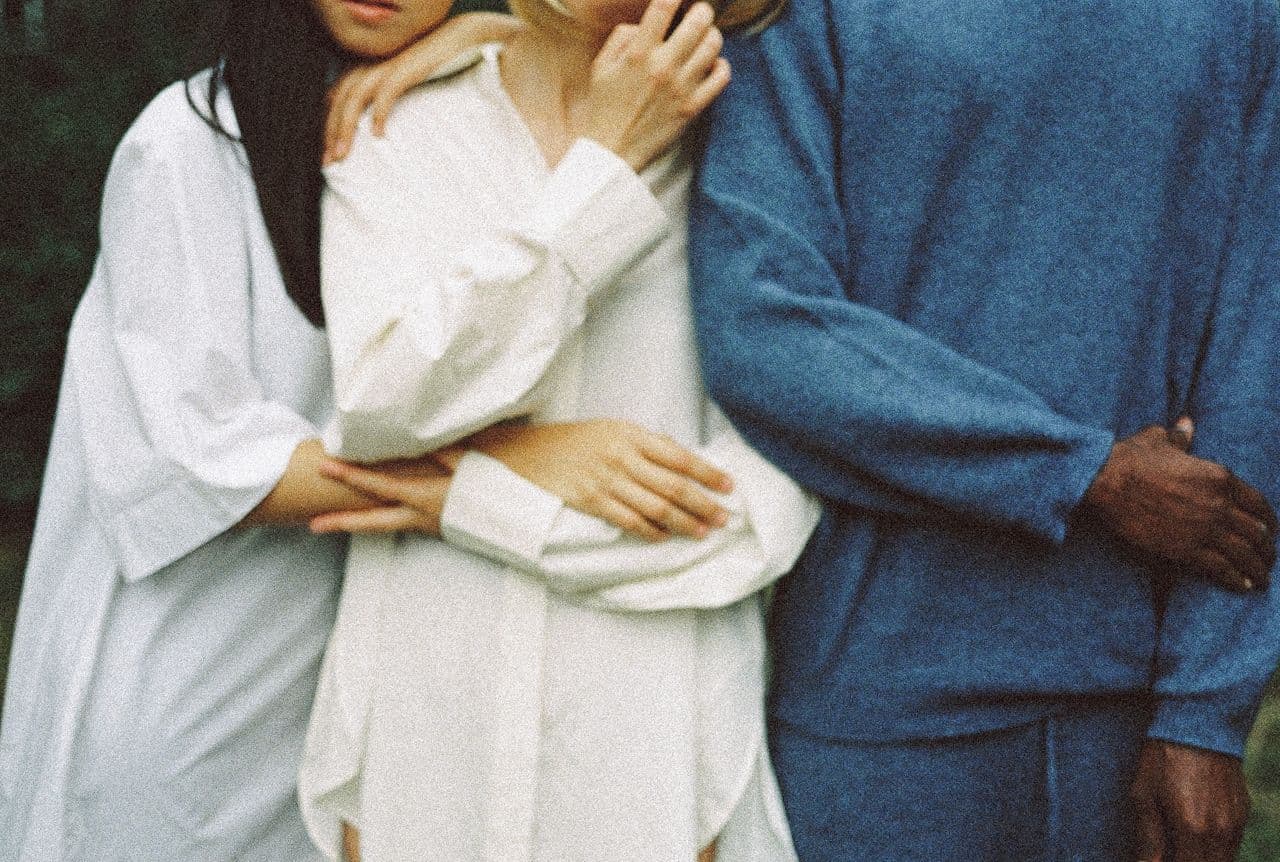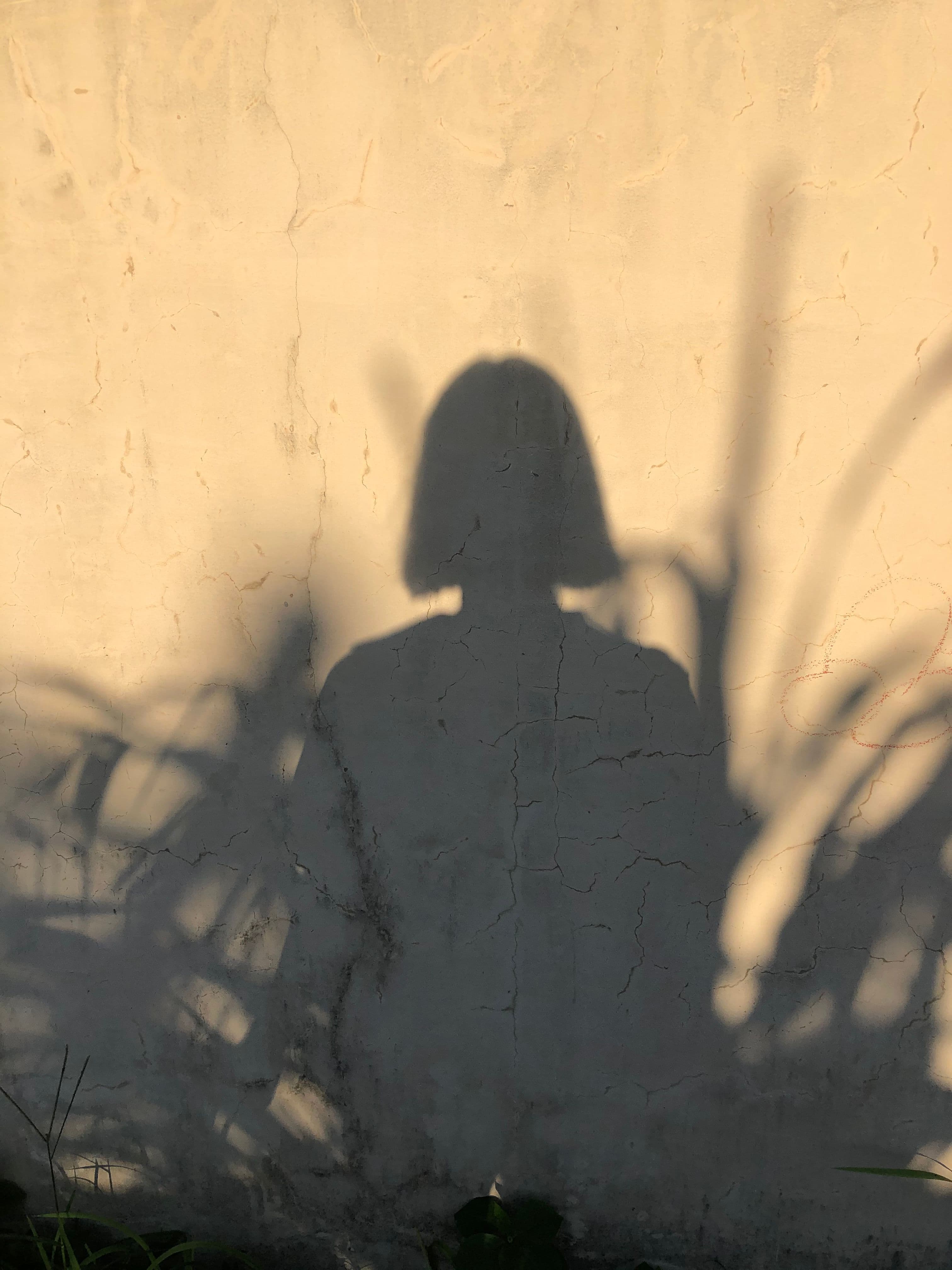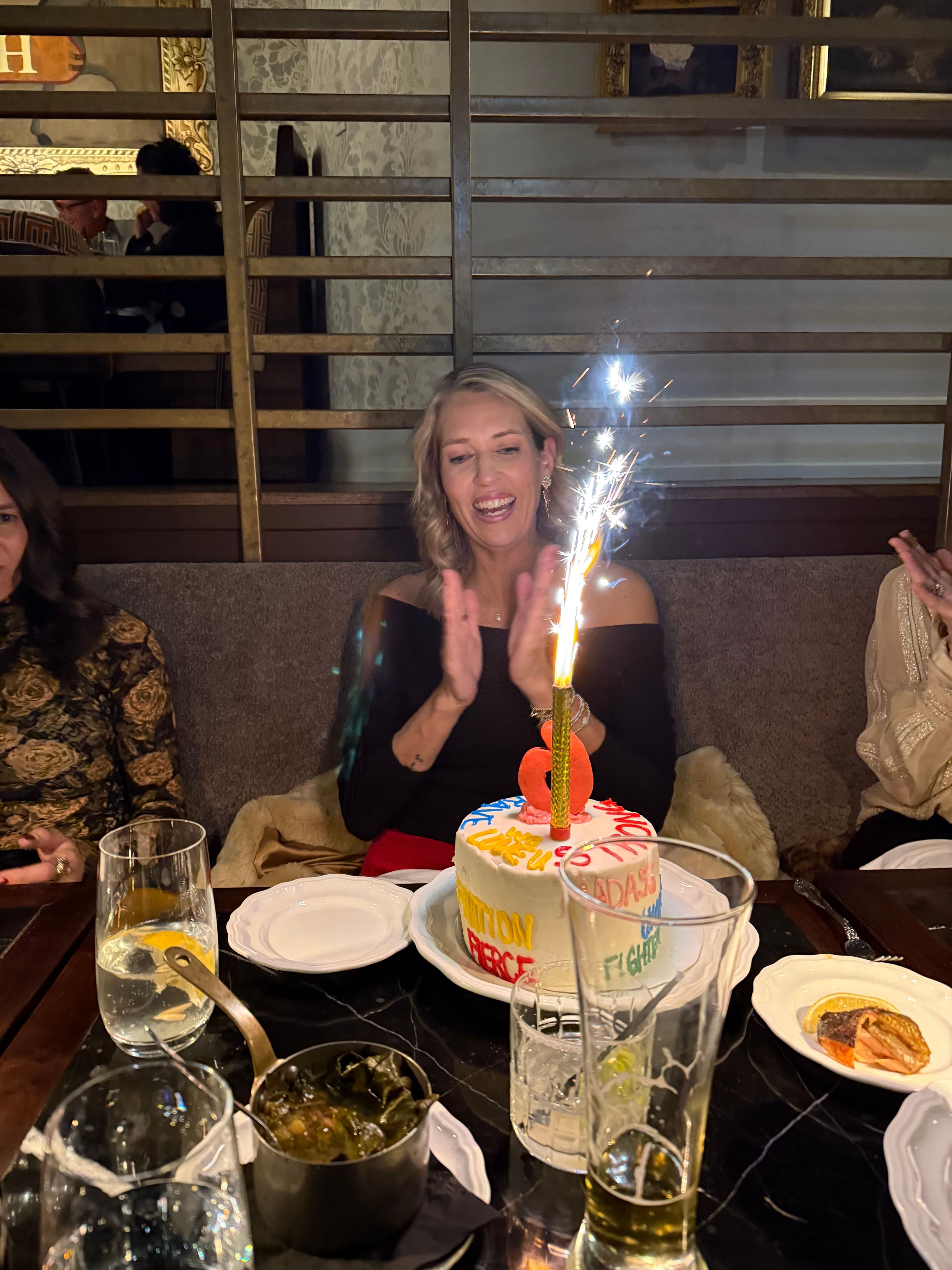When Inside Edition correspondent Alison Hall received a breast cancer diagnosis at 32, her first instinct was to report it on camera. Hall discovered her diagnosis on an Inside Edition assignment about the breast cancer risk assessment test, after Olivia Munn found her breast cancer this way at 43. Actually receiving the diagnosis was a moment many would retreat, and Hall stepped forward right into the camera, as the subject of the story.
What does it mean to take control of your narrative when your body feels out of your control? Hall, now 33, talks to us about telling her story publicly and in real-time and about the immediate rewards of speaking publicly about your hardest days (you get advice, you get commiseration, you get it off your chest). In our conversation, Hall opens up about reclaiming her story in a moment of profound vulnerability, the quiet dignity of returning to work, what to actually say when someone tells you they have cancer, and the best lip stains to fake some color when you need it most.
Q:
What led you to the moment where you said, 'I want to talk about this' when you got your diagnosis?
A:
Even when I was waiting on the results and I was worried that I was going to be diagnosed, I knew that I wanted to share my initial diagnosis because of the way that I was diagnosed. I felt so grateful that Olivia Munn was brave enough to use her platform and to share her story using this breast cancer risk assessment test. And so I felt super passionately that I wanted to spread this message and maybe do for someone else what she had done for me, which was to encourage earlier screening. I was 32 at the time, so this really highlights that this can happen to a young woman. I was so grateful that this [Olivia Munn] story came my way, because, otherwise, I don't think I would have been diagnosed for several more years.
I produced a piece here at Inside Edition coming out with my diagnosis, and then I also went on CBS Mornings the same day and shared my diagnosis there.
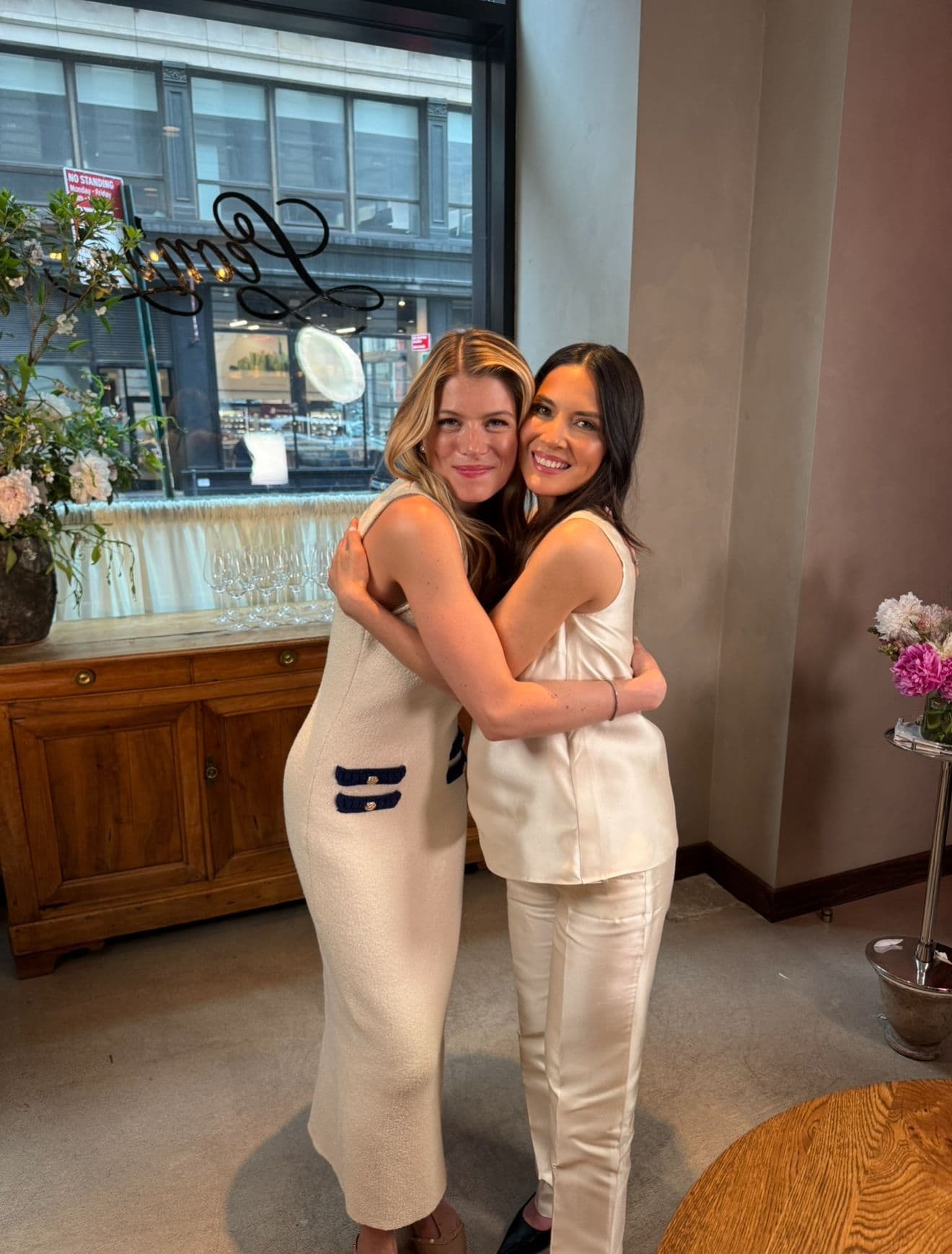
Alison and Olivia Munn. Image courtesy of Alison Hall.
Q:
Your motivation, to raise awareness and methods for early detection, is so honorable. Internally, though, did you feel any nerves about opening up about something private so publicly?
A:
That day, I was absolutely terrified. I asked my husband to come with me to CBS Mornings. It was a weird feeling to mix work and my personal life, in such a serious way.
But from the moment that both of the segments aired, I started just getting inundated with emails and text messages and words of support. The ones that meant the most to me were from women who were watching at home or who saw it on Instagram saying, ‘I saw your story, I am recovering from a double mastectomy,’ or ‘I’m waiting on test results,’ or ‘I went through this exact same thing last year, you're going to be okay. And thank you for speaking out about this.’ It just meant so much to me.
Q:
This is something I’m hearing from people who post a lot about their diagnosis or treatment, that community comes to them.
A:
I always tell people I had the most incredible friends and family in the world, they could not have been more supportive–but, in the weeks after I was diagnosed, I still felt alone. You think about your whole life in a whole new way. You think about your own body in a whole new way. It's really hard to describe to anyone who hasn't been through it, or even to relate to someone who hasn't been through it.
I set out on the mission to share my story with the hope of helping someone else and, instead, so many of these incredible women in this community ended up helping me. I communicate with a lot with women who get prophylactic double mastectomy. I screenshot and save every single one of the messages, and I stare at them and try to let them sink in.
Q:
I’ve often thought that doing social media about our lives is like a form of journaling. Did you find that shaping your experience into a narrative that you shared helped you process?
A:
I think it really helped. Writing has always been something that really helps me process my emotions. I've journaled for my entire life, since I was a little kid. I've also journaled throughout all of this, and I've also taken that [experience] and turned it into Instagram reels.
For example, I had a tougher time than I expected with my second surgery, which was a reconstruction surgery, and I was really upset about it. I thought: ‘How can I express myself and share it with other people?’ And when I do that, when it comes from a place that is just so natural, it seems to really resonate with people and it shows me that I'm not alone. People will write tips, or they'll say, ‘Oh, me too.’ That community that is born out of sharing those experiences is incredible.
But, most of the time I'm sharing because, it feels like I need to get it out, and it's a way that I process all of it. I've talked to my therapist about this, I think in a way it's taking back some control. All of this feels very out of your control, no matter what stage of cancer diagnosis you get.
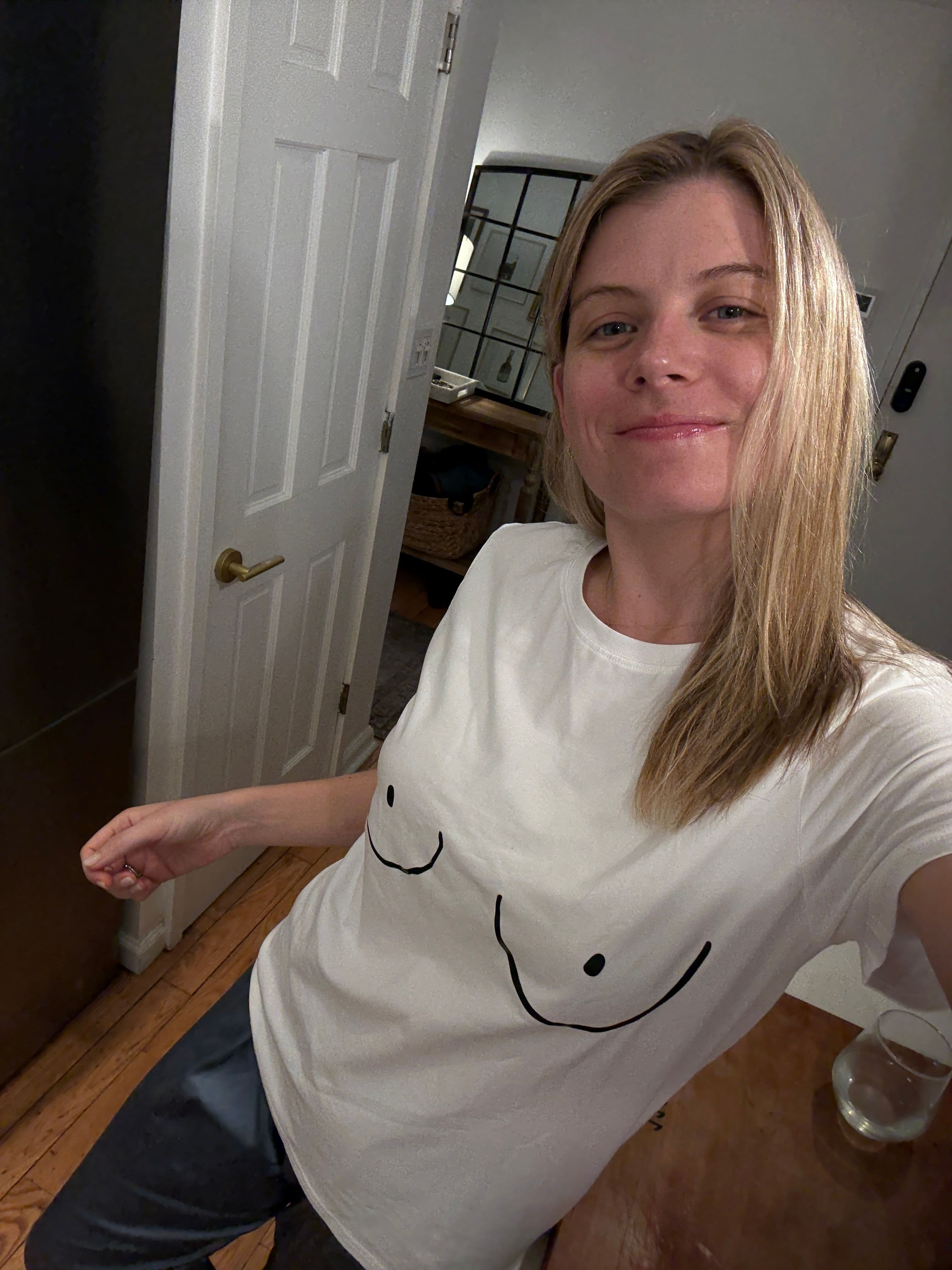
Image courtesy of Alison Hall.
Q:
Treatment is such an intense period, physically and emotionally and socially. How was your relationship to your job through this?
A:
In the testing and the diagnosis phase—which is honestly one of the hardest parts of all of this, because the unknown is just so, so great—my anxiety was really, really high at this time. And, of course, these procedures are painful, biopsies are not fun. I was so glad that I had work to distract me. Because in those days and weeks that you're waiting on news and going to appointments, time just stands still. I’d have an 8 AM horribly painful biopsy appointment, where I'm crying and I'm so scared, and then hearing, ‘Your results are going to come back in 10 days’, I thought: ‘Oh my gosh. What am I going to do for those 10 days?’ I was then able to go to work and do things that had nothing to do with cancer and be really busy and engaged. And no one knew what I was going through. One hour, I’d be in a hospital room having some sort of test done to the next hour, putting on lipstick and standing in front of a bunch of lights and talking into a camera as if everything was totally okay. And I would think to myself, ‘The juxtaposition of this is wild.’ But it still helped. It helped me personally.
And so once I was diagnosed, and ended up sharing my story, even just with my colleagues and my friends were like, ‘What? We would have never known.’ It's not like I didn't want people to know and I didn't want to stuff my emotions down and just pretend everything was okay. But I think that there's an element to work that helps you “keep calm and carry on.” After my mastectomy and then after my second surgery, I did take weeks off for each one, but I was really excited to get back to work at the same time, because I knew that it would really help me focus on other things in life and not have just this [cancer experience] be the only thing that I focus on.
Q:
It’s interesting how privacy, at times, can create a kind of protective space. A diagnosis, treatment, and surgery can be so disorienting. How did you stay connected to yourself in the midst of everything?
A:
Doing my Instagram during my recovery, it really helped me hold on to who I am outside of just like cancer and recovery. It really helped me remember who I am: I am a person who loves storytelling and who believes in it, and who also loves expressing herself. In a way, this whole process has made me be even more myself, publicly. Before, I would have never talked about my breasts at work. At least online, I've just become a little bit less filtered.
From a practical standpoint–I’ve recommended this to tons of people, and it only works if they're getting a double mastectomy, pre-chemo, or who didn't end up requiring chemo–get blowouts. Somebody got me a blowout gift card and then a couple more people did the same— they were for Vidov and Like Yara, which does manicures at the same time, both in the West Village. I ended up getting my hair blown out once a week for basically the four weeks that I was recovering. You can't lift your arms and you can't shower, really, for the first couple ten-ish days. After a blowout, the feeling is: ‘Oh, somebody has washed my hair. It has a nice curl to it. I feel sort of pretty. Or, I don't feel very pretty, but I actually look sort of pretty, and I smell nice.’ That was incredibly helpful.
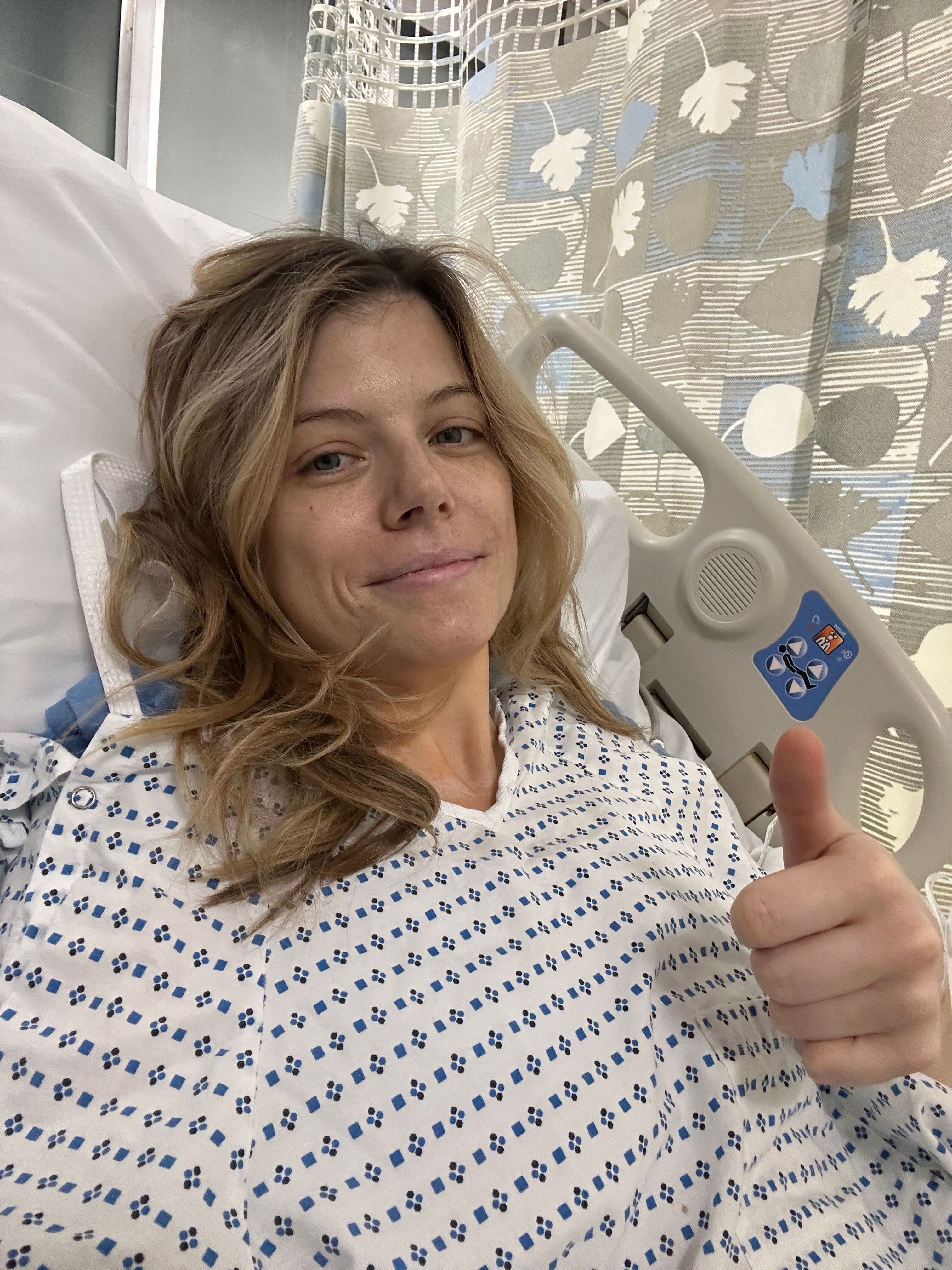
Image courtesy of Alison Hall.
Q:
Were there other gifts or indulgences or necessities you liked?
A:
I received a couple of really beautiful zip-up sweaters, a really beautiful robe from Barefoot Dreams, a wrap-sweatsuit shawl that I still wear all the time. Really cozy things that still looked really pretty, and those really helped too. I had this routine of being home and being completely on bed rest, but still, I at least had clean hair and I was at least wearing a cozy, clean sweater. I liked Vuori and Varley for sweatsuits and sweaters.
And I do a lip stain every morning, where your lips turn purple. It’s called Wonderskin and the shade is Romance. And then after that, I put on a Valentino lipstick, which is a slightly more subtle cooler color, in the shade Roman Grace.
Q:
Opening up to the public, you just have a greater volume of people telling you things. Was there anything that you wished people would avoid telling people with a diagnosis?
A:
I don't want anyone to feel bad if they're like, ‘Oh, shoot, that was me.’ But I would say, avoid talking about somebody else who had cancer immediately. There's a really nice way of doing it, like ‘My sister-in-law's best friend had breast cancer, and she went through something very similar. When you're ready, I can connect you. She might have some tips for you.’ But pressuring somebody to instantly want to speak to someone else who has had cancer, or with someone whose situation is completely different: how does that help me?
And then I think people are always trying to find silver linings–and I am one of those people, so I understand. But instantly looking for the positives and sharing it with the person. Especially with breast cancer, anyone saying like, ‘Oh well, at least you'll get a free boob job,’ or ‘At least you'll get an upgrade.’ That was really tough to hear. And people saying, ‘At least you caught it early.’ Of course, I'm so grateful that I caught it early.
It's funny, even as somebody who's been through this, now that I'm somewhat on the other side, when someone told me that they were diagnosed, I had to try to be really thoughtful with what I said, and try to remember what meant the most to me and what was not offensive. It’s not like it comes super naturally. You do have to be intentional with your words.
Q:
And did you read anything that you felt imparted any wisdom or felt meaningful?
A:
I read a book called The Bright Hour by Nina Riggs, which was absolutely beautiful. It’s about a woman with stage four terminal breast cancer. She would write about things like that with humor, even though it was so painful. The way that she writes—I remember she said something like, ‘Being in an MRI machine is like being subjected to an alien rock band that you can't escape.’ It’s so true and I hated that alien rock band.
When Breath Becomes Air by Paul Kalanithi is about an amazing doctor in California who's diagnosed with cancer. He basically writes through his treatment. And, it’s not quite a spoiler alert, but he passes away before he even finishes the book, and so his wife finishes the book for him. It’s a memoir on life and death, and it's very powerful.
And recently, I connected with another woman, Jean Hannah Edelstein, who had gone through this and she wrote a beautiful book called Breasts: A Relatively Brief Relationship.


